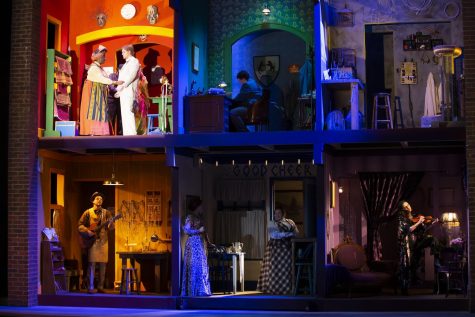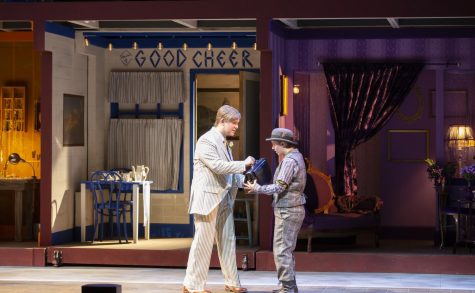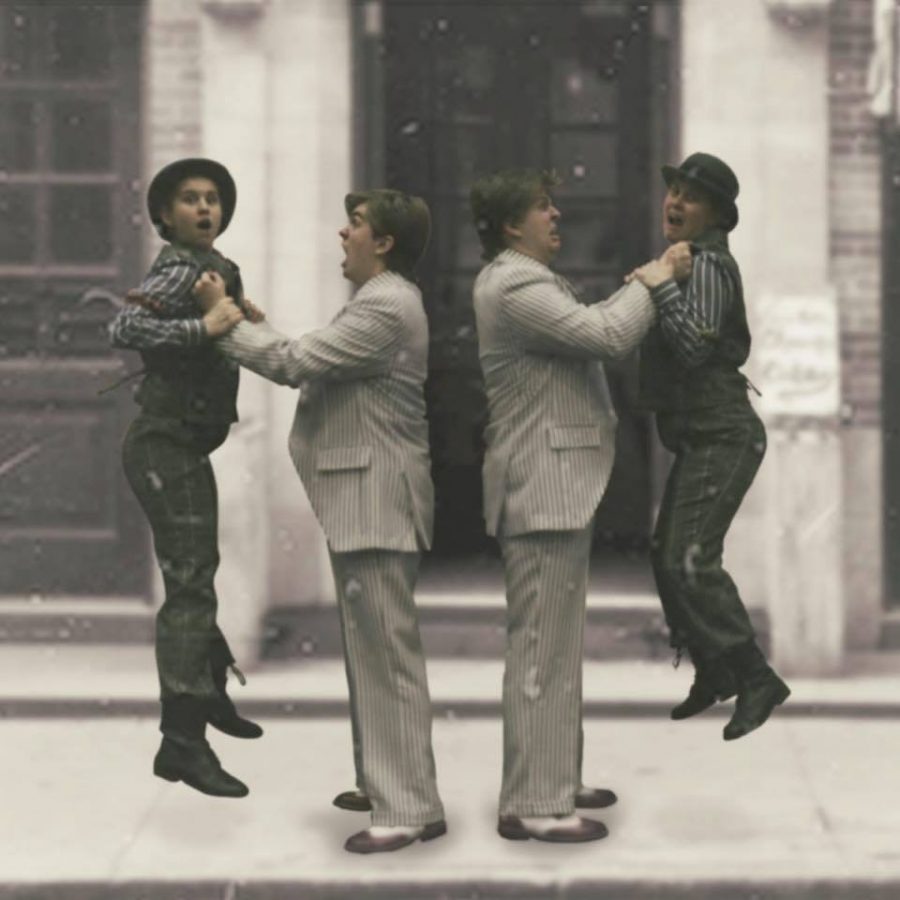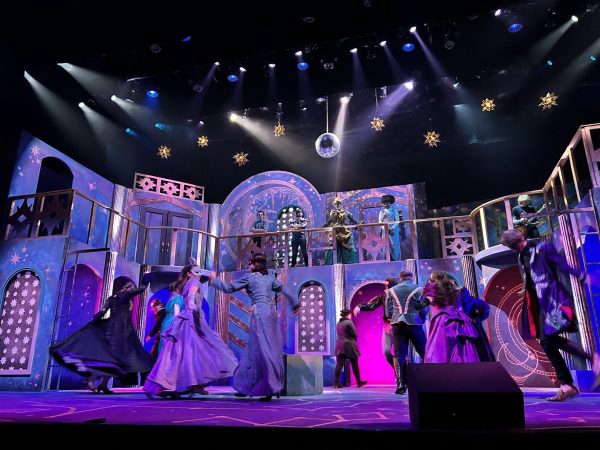‘Comedy of Errors’ is a refreshing perspective on Shakespeare
Katie Anderson (Dromio of Ephesus), Jack Towner (Antipholus of Ephesus), Davis Wood (Antipholus of Syracuse) and Brandi Simmons (Dromio of Syracuse) in UNCW’s “Comedy of Errors.” Photo courtesy of Abigail Norris.
“Comedy of Errors” is the third production of the 2019-2020 mainstage season at UNC Wilmington. The theatre department previously blew audiences away with the surreal “Darkness” and took us back to the early 20th century with “Diana of Dobsons.” Both plays were wonderful in their acting, set design, music and even their special effects, so it only seems fitting that such a talented department would chase after a playwright that is practically synonymous with theatre as a whole: William Shakespeare.
UNCW’s “Comedy of Errors” is not an attempt to redefine Shakespeare by any means, and anyone expecting that will be sorely disappointed. It should go without saying that watching a play written by Shakespeare requires a fair amount of focus and dedication. “Comedy of Errors,” despite being reimagined in many ways, is no different. It is a dense play that probably will not change anyone’s opinion on the writer. If you had PTSD in high school from his work, this play will not inspire some newfound love. However, despite not being the biggest Shakespeare connoisseur myself, I found “Comedy of Errors” to be a wonderful time once I was able to discover what was going on and look past the rather daunting monologues and themes of duality. Director Christopher Marino’s decision to place the time period in the early 19th century allows more realism in the production and creates a very unique interpretation of the source material.

The play is essentially about a set of identical twins, Antipholus of Ephesus (Jack Towner) and Antipholus of Syracuse (Davis Wood.) Both are indistinguishable from each other and have a servant both named Dromio. Dromio of Ephesus (Katie Anderson) and Dromio of Syracuse (Brandi Simmons) are also identical to each other, creating two sets of identical twins that are responsible for the dramatic irony that functions as the plot of the entire play. About the only way that the two sets of twins are distinguishable from each other is by different colored ties and armbands.
The first act of the production is mostly dedicated to setting up the relationship between the sets of twins and the confusion related. These four actors are at the heart of the play, but they also all frequently interact with the Antipholus of Ephesus’s wife, Adriana (Erin Sullivan,) whose performance is one of the most melodramatic (in a good way) in the entire show. Sullivan also served as a lead in “Darkness” in the fall, and she is no less impressive here. Renee Hapeman also returns from “Darkness” as Luciana, Adriana’s sister, and love interest of Antipholus of Syracuse, which of course causes more confusion. All of the actors and actresses work together to give Shakespeare a breath of fresh air and make the performance feel alive. Bad actors in a Shakespeare play can lead to an excruciatingly boring experience, but I am happy to say that this was one of the most energized performances of Shakespeare that I have ever seen.
The set design was a marvel that was a stark contrast to the minimalism that formed the set design in “Darkness.” Basically, a two-story building sits on the back of the stage for the entirety of the performance, with all of its intricately designed rooms visible to the entire audience. Actors would frequently be seen pantomiming and moving through the backdrop, making it easy to get lost in what was going on behind the action.

The final element that gave the performance some extra life came through musicians Bob Russell and Adrian Varnam. Their instrumentation is non-traditional for most UNCW theatre productions, with their music highlighting specific comedic moments and playing the theme at different parts of the play. Russell and Varnam are the glue that really shapes the entire show, making something that feels complete and full. There is also a really unique moment featuring Screamin’ Jay Hawkins’s “I Put A Spell On You” towards the end of the show that is worth the price of admission.
The acting, set designs and background music shape “Comedy of Errors” into a new take on Shakespeare. Sure, it is still Shakespeare, whose very name will either excite you or bore you to tears, but it is a refreshing perspective on a classic work.
“Comedy of Errors” will be showing its second weekend Feb. 27 through Feb. 29 at 8 p.m. and a March 1 matinee at 2 p.m.













